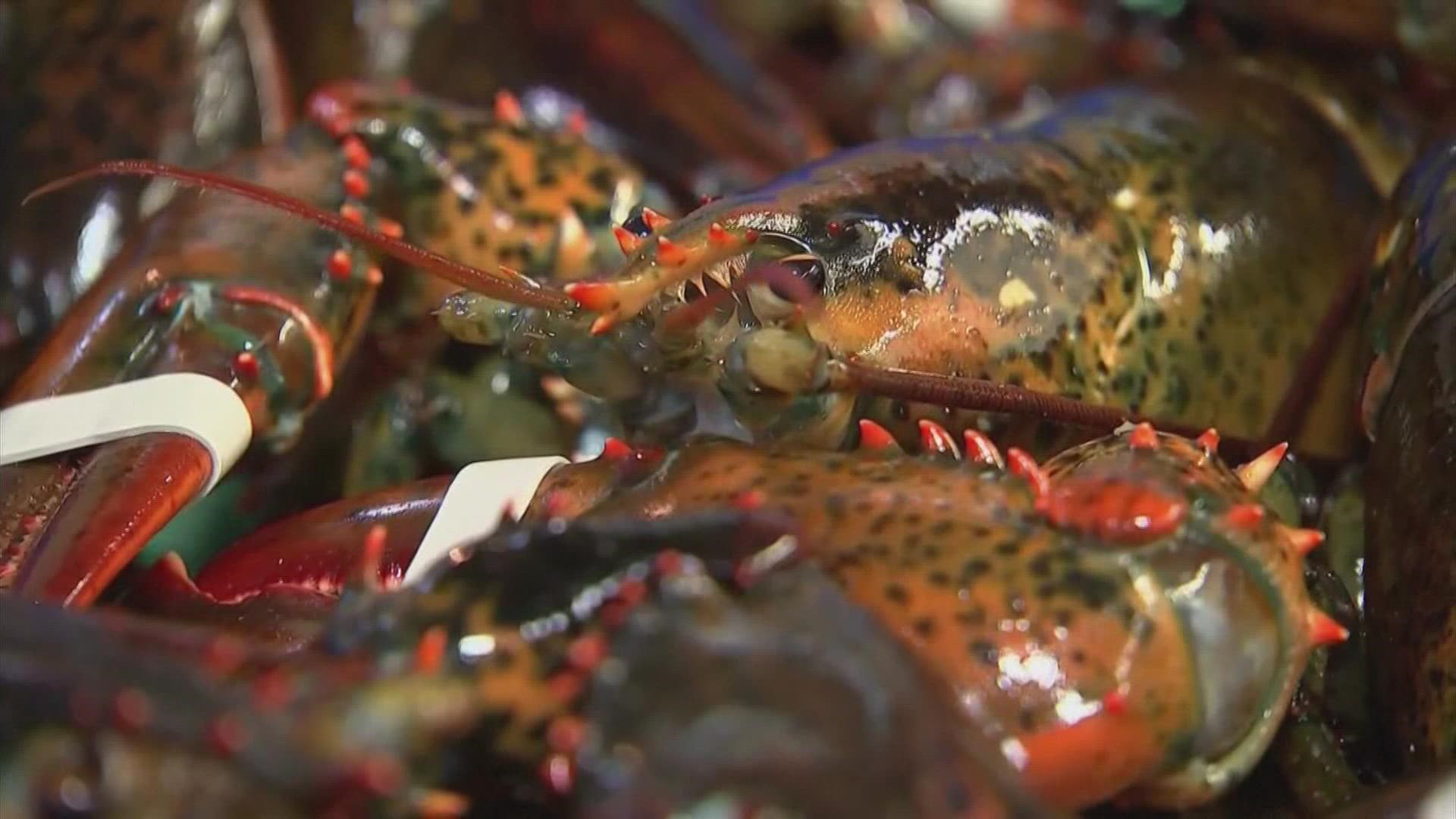LONDON, UK — When Great Britain left the European Union, it also left the EU’s animal welfare laws behind.
A replacement bill for the Brits was drafted and a research team assembled to determine what species should be granted protections as sentient animals.
Dr. Jonathan Birch, from the London School of Economics, led the research team, which reexamined 300 studies conducted on animals. When their results were published on November 19, a few additions stood out.
So-called sophisticated invertebrates like octopuses, crabs, and, lobsters were put up for inclusion as sentient beings. Birch watched experiments he said showed lobsters can act like conscious animals.
"They’re not just reflex creatures," he said in a Zoom interview with NEWS CENTER Maine. "They respond in flexible, sophisticated ways to injury and to noxious stimuli in similar ways to vertebrates."
If passed, the bill would force the UK government to treat these animals with a higher level of care, though that is up for interpretation.
So, too, is what exactly “sentient” means.
"It’s kind of a slippery slope if you, kind of, start making this assumption that lobsters are experiencing joy or pain," Dr. Robert Steneck told NEWS CENTER Maine. Steneck is a marine resources professor at the University of Maine and has studied lobsters for nearly 40 years. He said any animal killed for food is likely not perfectly calm moments before the end but that he has seen no evidence that lobsters can experience emotions.
"By some definitions, any reaction to stimulus is part of being sentient," he continued. "And this law is fundamentally about [whether] lobsters are sentient, and I’m suggesting that all animals are sentient by that definition."
Meanwhile, Charlotte Gill took a victory lap after reading news of Birch's research. The owner of Charlotte’s Legendary Lobster Pound in Southwest Harbor always believed lobsters experienced stress before being boiled. In 2018, she introduced THC — marijuana’s active ingredient — to her crustaceans, believing it calmed them. During a Zoom interview, with her restaurant behind her, Gill felt vindicated by the new bill in England.
"I'm really glad that this is getting the recognition that it deserves because it does and can make such a difference," she said.
"The lobster, I think, is always considered the least of these [animals] and we really haven't paid a tremendous amount of attention to what we're doing with that process," she said.
So, do lobsters feel pain?
Like with most scientific research, it’s not a clear yes or no. But, if you're going to boil a lobster dinner, both Birch and Steneck suggested the most humane way to go about it would be to kill the lobster quickly before putting it into the water.
Putting the crustaceans on ice or in cold water before boiling them, they said, does not actually result in numbness or unconsciousness. Instead, diners should take a heavy knife and, with a strong steady, motion, cut down into the top of the lobster at the carapace (on its body above the tail) and cut lengthwise to its rostrum (nose).
If your appetite waned after reading that, Steneck also noted that whether or not lobsters are sentient, they live the most free-range life of just about any animal humans eat, spending seven to 10 years feeding and roaming on the bottom of the ocean before wandering into a trap.

